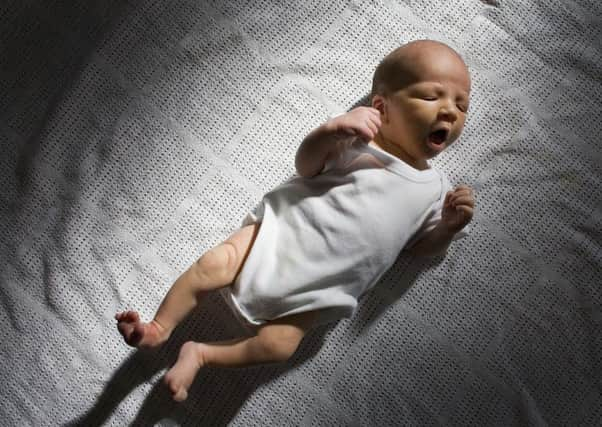Postnatal depression more likely 4 years after birth


Overall, the study found that depressive symptoms were more common in women whose children were aged four than at any time in their baby’s first 12 months of life.
But the effects of depression seemed to be strongest in those women who were first-time mothers; they were twice as likely to report having problems even four years after birth compared to those with two or more children.
Advertisement
Hide AdAdvertisement
Hide AdResearchers said the findings revealed there needed to be more of a focus on maternal mental health long after the first year, when services targeted at checking new mothers normally cease.
Campaigners and midwives agreed more support was needed for women to check for postnatal depression, even if this was several years after giving birth.
The latest study, published in BJOG: An International Journal of Obstetrics and Gynaecology, was based on more than 1,500 women who gave birth in hospitals in Melbourne, Australia.
The women completed questionnaires at regular intervals after having their baby up to four years and were assessed using the standard Edinburgh Postnatal Depression Scale.
One in three women reported having depressive symptoms at any point in the first four years after giving birth.
At the four-year mark, 14.5 per cent of all women reported depression – higher than at any point in the first 12 months after giving birth.
The researchers also found that women with just one child were twice as likely to report depressive symptoms at four years compared to women with other children – 22.9 per cent compared to 11.3 per cent.
The authors said there was a need for services to extend current surveillance of maternal mental health to cover all of the early years of parenting.
Advertisement
Hide AdAdvertisement
Hide AdWomen in the UK often receive no follow-up after a year, and in many cases checks end within a few months.
Dr Hannah Woolhouse, from the Murdoch Children’s Research Institute in Victoria, said: “These findings provide a compelling case for re-thinking current policy frameworks for maternal mental health surveillance.
“It is likely that current systems of maternal mental health surveillance in Australia and the UK will miss more than half the women experiencing depression in the early years of parenting.
“In particular, women who do not have subsequent children may be especially vulnerable to falling through the gaps as they will not be reconnected back into primary care services.”
John Thorp, BJOG editor-in-chief, added: “Much research has been conducted around maternal mental health during the perinatal period, however, we know very little about the prevalence of maternal depression after the first 12 months of giving birth.”
Rachael Dobson, co-founder of PANDAS added: “PANDAS supports individuals, families and carers with pre and postnatal illnesses. Although currently Postnatal Depression is classed up to 364 days post birth, we welcome this research to show it is common at 4 years and agree with this, PANDAS regularly supports individuals whos children are ages four and above. We need to continually support families to allow them to seek help when needed no matter of a child’s age. If you need to speak to someone regarding pre or postnatal illnesses you can visit PANDAS website pandasfoundation.org.uk or call our helpline 0843 289 8401.”
Case study: ‘It crept back up without me realising’
Joanne was hospitalised with postnatal depression ten days after the birth of her son four years ago.
But she said that, despite recovering enough to be released from hospital after a few months, she has continued to suffer symptoms of depression.
Advertisement
Hide AdAdvertisement
Hide Ad“After my son was born, I stopped eating and speaking and was starting to just generally shut down,” the 33-year-old said. “After I was discharged, I was pretty much abandoned. I was left in the care of my GP.”
Joanne, from Edinburgh, managed to get some help from support groups, but said she had ups and downs in the years that followed.
When she fell pregnant again, checks revealed that she still wasn’t well.
“There was no real follow-up after I left hospital. I was left to my own devices and it kind of crept back up without me realising, because I wasn’t horrendously ill,” she said.
She now has a seven-month-old daughter as well as her son, and said she is coping better. “I have had much more intervention this time,” she said.